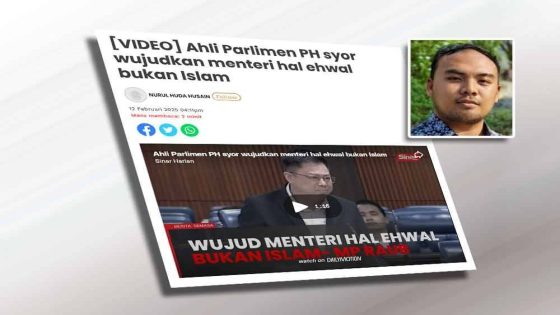On February 13, 2025, the Pemuda Parti Amanah Negara (Amanah) in Penang expressed strong opposition to the proposal by Raub MP Chow Yu Hui. The suggestion to appoint a Minister for Non-Islamic Affairs at the federal level has sparked concerns about its alignment with Malaysia‘s administrative framework. Could this move create unnecessary controversy?
- Amanah opposes proposal for non-Islam minister.
- Concerns about unnecessary financial implications.
- Existing mechanisms for non-Islam interests sufficient.
- Emphasis on national development and unity.
- Political leaders should propose responsible suggestions.
- Malaysia's status as an Islamic country highlighted.
Understanding the Opposition to New Ministerial Roles in Malaysia
Why is the proposal for a Minister for Non-Islamic Affairs facing backlash? The Pemuda Amanah believes that existing structures are sufficient to address the needs of non-Islamic communities. They argue that adding another ministerial position could lead to unnecessary financial burdens on the government.
Political Responsibility and National Harmony in Malaysia
Abrar Sadiq, the Communications Director for Pemuda Amanah, emphasized the need for political leaders to propose ideas that foster unity rather than division. He called for a focus on development, economic stability, and the well-being of all citizens, rather than stirring up sensitive issues.
Key Concerns About the Proposal for a New Ministerial Position
The proposal raises several concerns among political leaders and the public:
- It may create unnecessary financial implications for the government.
- Existing ministries already address the needs of non-Islamic communities.
- It risks being exploited for political gain by certain parties.
- It could lead to increased racial and religious tensions in Malaysia.
Potential Impact on Malaysia’s Multicultural Society
The suggestion to split the Ministerial role could have significant repercussions. Malaysia is known for its diverse culture, and any changes to its political structure must be approached with caution. Leaders must prioritize unity and inclusivity to ensure that no group feels marginalized.
Moving Forward: Focus on Development and Unity
As Malaysia navigates its political landscape, the emphasis should be on collaborative growth. Leaders are urged to propose initiatives that build bridges rather than walls. How can Malaysia ensure that all voices are heard while promoting national progress?
In conclusion, the debate surrounding the proposed ministerial position highlights the importance of maintaining harmony in Malaysia’s diverse society. Political leaders must prioritize unity and responsible governance to foster a prosperous future for all.
































